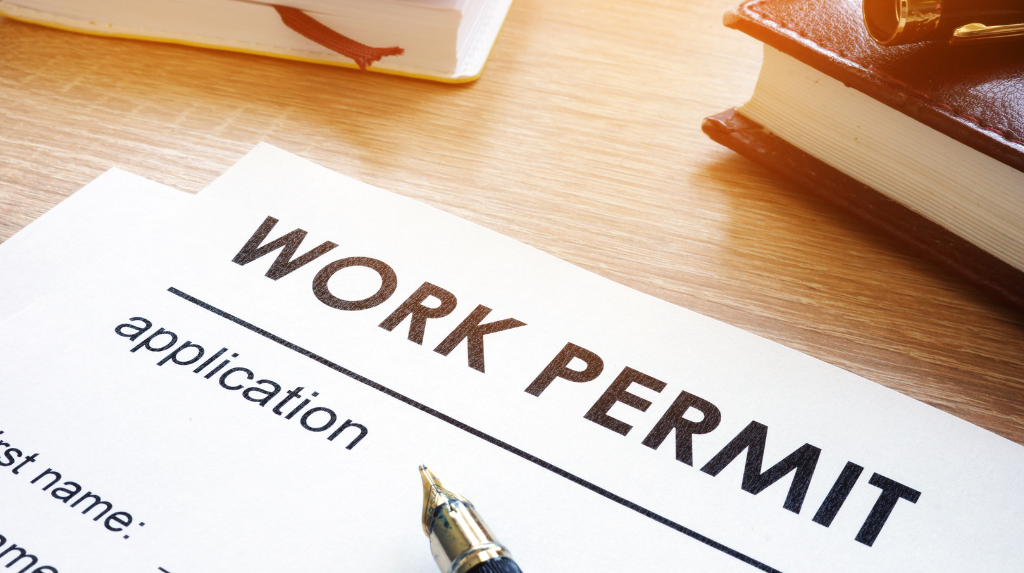The Italy Spouse Visa is a visa for the foreign spouse of an Italian national or legal permanent resident to reside in Italy. This visa is used for family reunification and allows couples to live together in Italy.
Who Can Apply
For the spouse visa, only individuals who are legally married to an Italian citizen or legal resident qualify. The candidate must fulfill certain standards set by Italian immigration law.
Qualifications for Italy Spouse Visa Eligibility Criteria
The Italy Spouse Visa requires specific criteria to be met:
Relationship Requirements
- Documents Proving Genuine Marriage: Applicants must provide documentation that proves their marriage is genuine. This could include a marriage certificate and other relevant documents.
- Minimum Age to Get Married: Marriage is permitted only between two legally aged individuals, which is at least 18 years in Italy.
Conditions of the Italian Sponsor’s Residency
The Italian sponsor must be an Italian citizen or legal resident. This ensures that the couple can live permanently in the country.
Minimum Income Requirement
The Italian sponsor must demonstrate financial stability by providing a defined minimum income. This requirement ensures they can support their spouse without needing public assistance.
Health Insurance Requirements
The applicant needs valid health insurance that covers their time in Italy. This insurance must meet specific coverage requirements established by the Italian authorities.
Language Proficiency
While not required, having some knowledge of Italian can be beneficial. In some cases, candidates may need to prove their language skills as part of the application process.
Types of Spouse Visas
Couples’ visas depend on the status of the Italian sponsor:
Visa for Spouses of Italian Citizens
This visa is specifically for individuals married to an Italian citizen. It allows them to live in Italy and grants them rights similar to those of Italian citizens.
Visa for Spouses of Permanent Residents (EEA or Non-EEA)
Applicants can also apply for this visa as foreign spouses of permanent residents in Italy. The criteria may differ slightly depending on whether the sponsor is an EEA or non-EEA resident.
Differences Between Types of Spouse Visas
The primary difference between these visas lies in the status of the sponsor. Both types aim to facilitate family unity, but specific conditions and steps can vary based on the citizenship or residency of the sponsor.
Important Links and Resources
If you’re unsure how to apply for a spouse visa, here are some resources to help:
Official Government Websites
The Italian Ministry of Foreign Affairs has comprehensive information on how to apply for a visa, including required documentation and procedures.
Consulates and Embassies
Consult your nearest Italian consulate or embassy for local information about application procedures and requirements.
Legal Assistance
Consider seeking advice from immigration lawyers who specialize in family reunification to ensure compliance with all legal requirements.
Application Process
The application process for an Italy Spouse Visa consists of several steps:
- Gather Required Documents: Collect necessary documents such as marriage certificates, proof of income, health insurance details, and language proficiency certificates if applicable.
- Apply: Submit your application to the nearest Italian consulate or embassy with all required documents.
- Attend an Interview: Some applicants may need to attend an interview regarding their relationship and plans in Italy.
- Wait for Review: Processing times vary; applicants should allow at least six weeks for their application to be reviewed.
- Obtain a Visa: If successful, you will receive your spouse’s visa, allowing you to enter Italy and apply for a residence permit upon arrival.
What To Do Once You Arrive In Italy?
Upon entering Italy with a spouse visa, it is important to obtain a Permesso di Soggiorno (residence permit) within eight days. This permit allows you to live legally in Italy for the duration of your visa.
Validity and Renewal
The residence permit is usually valid for five years and can be renewed as long as you continue to meet eligibility criteria. After five years of legal residency, you may seek permanent residency.
Documents Required to Apply for Italy Spouse Visa
Applicants for an Italy spouse visa need a comprehensive checklist for the application process. Here’s a list of necessary documents:
- Passport and Visa Application Form: A valid passport is required, with at least three months’ validity beyond your intended stay.
- Certificate of Marriage: An original marriage certificate must be apostilled and translated into Italian if it is not already in that language.
- Document Authenticating Sponsor’s Citizenship or Residency Status: A copy of the Italian spouse’s passport or residence card.
- Income and Financial Stability Proof: Evidence that the Italian spouse can financially support their partner, such as tax returns or bank statements.
- Proof of Adequate Housing: Documentation showing suitable accommodation in Italy, such as a lease or title deed.
- Health Insurance: Proof of health insurance providing coverage during your stay in Italy.
Additional Costs
There may be additional fees for document translation and legalization (apostille). Other costs include health insurance, travel expenses related to interviews or applications, and other unplanned expenses associated with moving or settling in Italy.
How Long Is the Italy Spouse Visa Valid?
The Italy Spouse Visa is typically valid for one year upon approval. This initial visa allows the holder to enter Italy and live with their Italian spouse. After arriving in Italy, the visa holder must apply for a Permesso di Soggiorno (residence permit), which grants them legal residency for a longer duration.
Duration of the Visa
- Initial Visa Validity: The spouse visa is generally issued for one year.
- Extensions: The residence permit can be renewed upon expiration, provided the couple continues to meet the eligibility requirements. Renewals are typically granted for periods of up to five years.
Residence Permit (Permesso di Soggiorno)
Upon arrival in Italy, the spouse must apply for a Permesso di Soggiorno within eight days. This residence permit allows the spouse to live legally in Italy beyond the initial visa duration.
Converting the Visa to Permanent Resident Status
After residing in Italy for five years on a spouse visa, holders may apply for permanent resident status. This transition requires proof of continuous residency and fulfillment of other criteria set by Italian immigration authorities.
Rights and Benefits of the Spouse Visa Holder
Holders of an Italy Spouse Visa enjoy several rights and benefits that enhance their quality of life in Italy:
Right to Live and Work in Italy
Spouse visa holders have the right to live and work in Italy without restrictions. This provision allows them to seek employment opportunities and contribute economically.
Access to Healthcare, Social Services, and Public Benefits
Visa holders can access Italy’s public healthcare system, provided they meet social security contribution requirements through employment. They are also eligible for various social services available to residents.
Educational Opportunities for Children
Children of spouses holding an Italian spouse visa have access to public education in Italy. This includes enrollment in local schools, providing them with opportunities for integration and learning.
Family Reunification Options
The spouse visa facilitates family reunification, allowing other family members to join the primary applicant under specific conditions. This process helps maintain family unity while living abroad.
Challenges and Common Issues
While obtaining an Italy Spouse Visa offers many benefits, applicants may face several challenges during the process:
Delays in Visa Processing
Visa processing times can vary significantly, often taking several weeks or even months. Applicants should prepare for potential delays by applying well in advance of their intended travel dates.
Common Reasons and How to Avoid Them
Visa applications can be denied for various reasons, including:
- Insufficient Documentation: Failing to provide all required documents can lead to rejection. It is crucial to carefully review application requirements and ensure all paperwork is complete.
- Inadequate Proof of Relationship: Applicants must demonstrate that their marriage is genuine. Providing insufficient evidence can result in denial.
- Failure to Meet Financial Requirements: The Italian sponsor must show adequate financial resources to support their spouse. Meeting these requirements is essential for approval.
To avoid these pitfalls, applicants should meticulously prepare their applications, ensuring all documentation is accurate and comprehensive.
Language Barrier and Cultural Adaptation
Language barriers can pose challenges for new arrivals in Italy. While not mandatory, having basic Italian language skills is beneficial for daily interactions and integration into society. Additionally, cultural differences may require time for adjustment as spouses adapt to their new environment.
Renewal and Permanent Residency after Marriage
Extending Your Spouse Visa or Residence Permit
Once you are married to an Italian citizen or resident, you may need to extend your spouse’s visa or residence permit. The renewal process is straightforward but requires careful attention to detail. You can apply for renewal up to 90 days before the expiration date of your current permit and within 60 days after it has expired. To renew, you must provide documentation similar to what was required for your initial application, including proof of continued marriage, financial stability, and adequate housing.
The renewal application must be submitted at the local Questura (police headquarters) in Italy. Ensure that you have all necessary documents ready, including updated proof of income and housing arrangements. If you have been absent from Italy for more than six consecutive months, this could jeopardize your ability to renew your permit.
Applying for Permanent Residency
After holding a spouse visa for a specific period—typically two years—you may be eligible to apply for permanent residency in Italy. To qualify, you must demonstrate:
- Continuous residency in Italy for two years.
- Stable income that meets the minimum income requirements set by Italian law.
- Adequate housing that meets local standards.
The application for permanent residency is submitted to the local Questura. You will need to provide documentation similar to what was required for your initial visa and renewal applications, along with proof of your integration into Italian society, such as language proficiency and knowledge of Italian culture.
Naturalization Process
Becoming an Italian citizen through naturalization is another option available after marriage. You can apply for citizenship after being married for at least two years if residing in Italy or three years if living abroad. This period is halved if you have children together. The naturalization process involves submitting an application to the Ministry of Interior and providing various documents, including proof of marriage, residency, and language proficiency.
The naturalization application can take several months to process, during which authorities will review your background and integration into Italian society. Successful applicants will receive an Italian citizenship certificate.
Italy Spouse Visa vs. Other Family Visas
The Italy spouse visa allows foreign spouses of Italian citizens or residents to join their partners in Italy. Other family visas include dependent visas for children or parents of residents and partner visas for unmarried couples.
- Spouse Visa: Specifically designed for legally married couples; it offers a direct path to residency and eventual citizenship.
- Dependent Visa: Allows family members (children or parents) of residents to join them but may have stricter financial requirements.
- Partner Visa: For unmarried couples; requirements can be less stringent than those for spouses but often involve proving a long-term relationship.
Pros and Cons of the Spouse Visa Compared to Other Types
Pros:
- Direct path to permanent residency and citizenship.
- Generally fewer restrictions compared to dependent visas.
- Provides immediate rights to work in Italy.
Cons:
- Requires proof of a legally recognized marriage.
- May involve more complex documentation compared to other family visas.
- The application process can be lengthy due to verification procedures.
Frequently Asked Questions (FAQs)
How Long Does It Take to Get the Italy Spouse Visa?
The processing time for an Italy spouse visa varies by consulate but generally takes between 2 to 6 months from the date of application submission. Factors such as document completeness and background checks can influence this timeline.
Can I Work in Italy on a Spouse Visa?
Yes, individuals holding a spouse visa in Italy are allowed to work without needing additional permits. This provides significant flexibility for spouses seeking employment while residing in Italy.
What Should I Do If My Spouse Visa Is Rejected?
If your spouse’s visa application is rejected, you will receive a notification detailing the reasons for denial. You can appeal the decision or reapply with additional documentation addressing the issues raised in the rejection notice.
What Is the Process for Bringing Children to Italy on a Spouse Visa?
To bring children to Italy on a spouse visa, you must include them in your visa application as dependents. You will need their birth certificates and proof of relationship. If they are over 18, they may need separate applications depending on their circumstances.
The Italy Spouse Visa is an important aspect for spouses in Italy who want their partners to join them in the country. It facilitates family reunification and provides various political and economic rights and advantages, making it a popular choice among couples. Applying for this visa might be the best decision for your family reunion and for creating a future together in Italy.
Nonetheless, when it comes to the application process, it is imperative to do some groundwork. This includes collecting essential documents for a successful immigration interview, such as marriage certificates, proofs of income, and insurance policies. It is crucial that all details submitted for the application are correct and that your application meets all required criteria without missing any details.
Tips for a Successful Application
Start Early
- It is advisable to begin the application process as early as possible since some applications may take time to process.
Document Everything
- Prepare all possible evidence of the relationship between the couple, including photographs, records of communication, joint receipts, and other relevant documents.
Financial Stability
- Ensure that the Italian sponsor has the minimum income necessary to meet the needs of their spouse.
Seek Professional Help
- If you have doubts about any of the steps in the application process, consider consulting immigration lawyers or visa consultants who specialize in family reunification.
How Law and Visas Can Help?
At Law and Visas, our team of expert immigration consultants is here to make your travel to Italy straightforward and successful. Whether you’re applying for a Family reunification Visa or a Long Stay Visa, we handle every step—from preparing your application to gathering the required documents.
Our Immigration Consultants and Lawyers ensure that your application meets the highest standards, with no details missed. We’ll also keep you informed throughout the process and coordinate with the immigration office or embassy on your behalf.
Law and Visas have a strong record of helping clients secure the visas/permits they need to visit Italy. You can call us today at +234 812 5505 986 to learn how we can help you.





